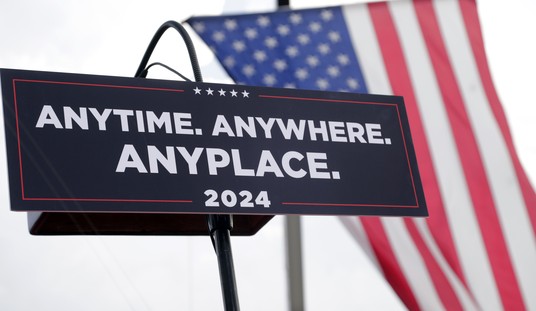Last September, Vox published The Great Rebuild Issue of The Highlight. The Highlight is Vox’s space for explainers that aren’t necessarily tied to the news cycle. The Great Rebuild Issue covered a number of very broad issues including “How to build a better American economy” and a piece titled “We can end America’s unemployment nightmare.” That piece covered the unemployment systems across the entire nation but, by way of example, repeatedly referred to problems with the system in California.
Erin Suggs applied for unemployment in March as soon as the California salon she works at shut down. She figured her case would be pretty straightforward — she works on commission, meaning she’s counted as a regular employee, not self-employed.
But it took the 50-year-old mother of two more than two months to get her benefits, during which time she estimates she and her husband called California’s Employment Development Department, which administers the state’s unemployment system, upward of 3,000 times. It turned out that in filling out the forms, she checked one box wrong. “It just put me in pending hell for 10 weeks,” she says. “There was no way of fixing it.”
Her experience is hardly unique. In California alone, more than 6 million people, or one-third of the state’s workers, have filed for unemployment benefits, and hundreds of thousands of them have been stuck in a weeks- or even months-long backlog.
The problems with the California system weren’t new ones and Vox pointed to California Assembly member David Chiu who it reported was “spearheading the charge” to improve it. The article contains a link to this piece in the LA Times from last August. It’s headlined, “California lawmakers ask Newsom to act immediately on unemployment claims” and it describes a letter which Assembly member Chiu and a bipartisan group of lawmakers had sent to the governor. [Emphasis added]
In a letter to the governor, a bipartisan group of 61 lawmakers issued a series of requests for immediate action at the state Employment Development Department, including calls for the agency to ensure service representatives do not hang up on callers whom they can’t help, and implement an automatic call-back system to quickly respond to those who cannot reach a live operator. The lawmakers also called for the agency to expedite its approval of unemployment benefits by retroactively certifying claims and resolving issues later in the process…
“As claimants suffer without income while EDD slowly makes its way through the queue of backlogged claims, EDD should provide many of them with at least initial or partial benefits,” the letter said, adding that “the assumption should be that the vast majority of claimants have legitimate claims to what they are owed, with retroactive certification.”
You get the picture. Chiu was telling the governor to get the money out the door fast and worry about the paperwork later. And Vox was citing this as the kind of effort needed to fix the problems with the California system. In the same piece we’re also informed that one of the problems with some unemployment systems is an emphasis on detecting fraud. [Emphasis added]
Given the recent troubles with unemployment, there has been a lot of attention on the outdated technologies being used. But new technology does not always translate to a more effective system. Some states that have modernized their technology have done so with a focus on fraud and making them harsher on the unemployed, said Michele Evermore, a senior policy analyst at the National Employment Law Project (NELP). “Florida is technically a modernized system, but they changed the system with the absolute aim of making it harder for people to get benefits,” she said.
While experts acknowledge that fraud exists, they say there’s been too much attention on it, overshadowing concerns about getting money to people in need. “They’re focused on catching the bad guys rather than helping the good guys get through,” said Andrew Stettner, a senior fellow at the Century Foundation.
There’s more to the piece but hopefully you can see the slant it’s presenting regarding unemployment systems in general and California’s in particular. People are being held up because of silly paperwork errors. Instead of getting money out to “the good guys” many places are too worried about “catching the bad guys.”
The Vox piece was published in September. If you jump forward two months to November of 2020 a group of California District Attorneys announced what they described as “the most significant fraud on taxpayer funds in California history.” They had discovered that prisoners in the California penal system had filed tens out thousands of false claims. In 133 cases the payments had been made in the names of death row inmates. From the NY Times:
The 35,000-plus payments sent out in the name of state prisoners alone…totaled more than $140 million between March and August, with nearly a half-million dollars disbursed in the names of 133 death row inmates. Among the largest: a claim for $19,676 disbursed in the name of a death row inmate and another for $48,600 in the name of another felon.
They hadn’t gotten to the bottom of it but there was concern this prison fraud was just the tip of the iceberg. And it turns out that suspicion was right. Jump forward two more months to January 2021 and the AP was reporting the total unemployment fraud in California was at least $11 billion but could be as much as $30 billion.
California Labor Secretary Julie Su told reporters in a conference call Monday that of the $114 billion the state has paid in unemployment claims, about 10% — or $11.4 billion — have been confirmed as fraudulent.
Nearly $20 billion more — another 17% — is considered suspicious, and a large part of that could be found to be fraud, she said.
As much as 27% of all the money that went out may have been fraud. This is not an inconsiderable amount of money even in the scheme of the state’s overall budget. Just the $11 billion uncovered so far will amount to around $1000 owed by every family in the state.
“I got to understand, every billion dollars that Sacramento spends comes to about $86 per family. So, the fraud they’ve documented comes to about $1,000, on average, for every California family,” Rep. McClintock said, “But that’s only what they’ve documented. They say it could grow to $30 billion. That’s more than $2,500 for every family in California, on average, just to pay for the fraud. That’s just mind-boggling.”
At this point, it is not clear how much of the fraudulent payments EDD or California will be on the hook for. The EDD is quick to point out that approximately 95% of the fraud occurred in new federal pandemic relief programs, meaning the money came from the federal government and not the state unemployment fund. The EDD is also working with investigators to recover some of the fraudulent payments, but it is not clear how much money they will actually be able to get back.
Of course if California isn’t on the hook for all of the fraud, which involved federal funds, that just means the federal government is on the hook. Either way, taxpayers somewhere will be expected to pay for it. It turns out that California did have an anti-fraud system in place prior to the pandemic, but it was turned off in 2016:
Long before the world had even heard about a virus strain called COVID-19, EDD had signed a contract with a new company called Pondera Solutions. Their system was a fraud detection program.
The Obama administration gave EDD a Department of Labor grant of nearly $2 million in 2013 to install and begin using the system. It was so successful it started getting attention outside EDD…
A former EDD employee emailed KCRA 3 Investigates saying the same thing. That former employee, who wishes to remain anonymous, says that the Pondera system detected “an amazing amount of fraud.” They add that Pondera’s program compared claims to EDD with public databases and then fine-tuned itself to better detect fraud…
Both that former employee and Pierson say that when the Department of Labor grant ran out, someone at EDD decided that the bill to continue using Pondera — roughly $2 million a year — was too high.
So we saved $2 million a year and lost $11 to $30 billion. Great job California bureaucrats! Who was the person who made this decision and have they been fired? My guess is they still have a job but I’m not sure anyone has even asked who made the call.
There’s a pretty obvious object lesson here. Things in the real world don’t work they way they do in Vox explainers. In the real world when you shovel billions out the door and worry about the paperwork later you wind up with a significant portion of it being fraud. Contrary to Vox’s claim that there was too much focus on fraud, it turns out there was far too little in California. I looked for a Vox explainer on California EDD fraud but couldn’t find one. Maybe it’s out there and I missed it.
On the plus side, we’ll always have this catchy track about EDD fraud from rapper Nuke Bizzle. So you can’t say we got nothing for our money.








Join the conversation as a VIP Member